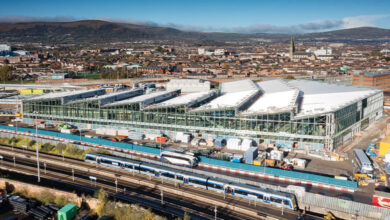Legislative priorities

The Department for Infrastructure (DfI) has identified five potential pieces of priority legislation it hopes to bring before the Northern Ireland Assembly during the remainder of the mandate.
The failure to restore powersharing in Northern Ireland for almost two years following the May 2022 election has resulted in a shortened mandate for Executive Ministers and departments to progress necessary legislation.
Provided there are no further collapses, the next Northern Ireland Assembly election must happen on or before 6 May 2027, meaning that ministers have just over three years to bring forward and finalise legislation.
Speaking in March 2024 to the Northern Ireland Assembly’s Infrastructure Committee, Minister for Infrastructure John O’Dowd MLA said that his department has identified five priority bills.
The first, and most advanced piece of primary legislation, is the Water, Flooding and Drainage Bill. The Bill, which will seek to give additional powers for water shortage measures, create new measures for dealing with drainage and flooding, and include technical and procedural improvements to existing legislation, has already undergone public consultation and is included in the draft Programme for Executive Bills for introduction in 2024.
Pre-legislative scrutiny of the Ports and Harbours Bill has been scheduled for the Assembly’s Infrastructure Committee for 12 June 2024. The bill is expected to comprise three main elements, including changing the Office for National Statistics (ONS) classification of trust ports, by removing the legislative controls exercised by the Department. Further elements of the Bill centre on giving trust ports extended commercial powers, and additional provisions aimed at statutory harbour authorities relating to marine safety.
The Minister has stated that substantial policy developments have been undertaken and key issues have been identified in conjunction with key stakeholders, meaning that the Bill may be introduced in the first quarter of 2025.
A third bill, the Rail/Road Transport Bill, which was described by the Minister as “significant in size”, is expected to cut across a large number of policy areas. Likely to be divided into six parts, the Minister has suggested that each part could potentially be taken forward as a separate bill. Depending on progress and agreement, the Bill could form part of year three of the Executive’s legislative programme in 2026.
Two further pieces of legislation relate to transport decarbonisation and a planning amendment bill, both of which are described by the Department as at “initial policy scoping stage”.
Further to primary legislation, the Minister has indicated an intention to address a number of subject areas including reservoirs, electric vehicles and free period products through secondary legislation.





